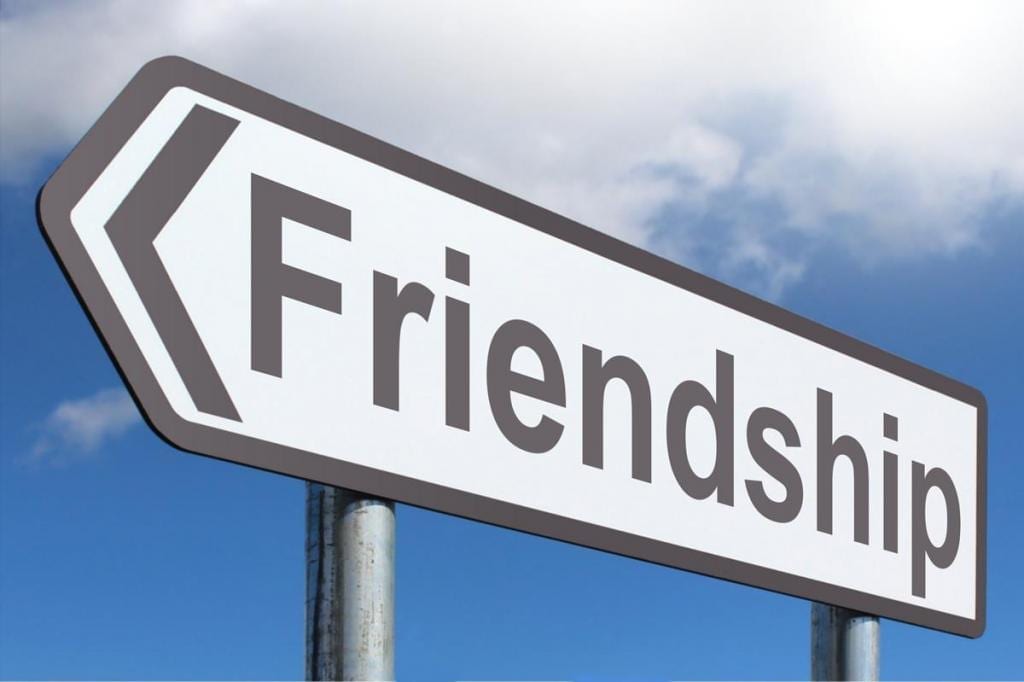A quotation from one of Thomas Jefferson’s letters has recently gone the rounds as a popular meme:
I never considered a difference of opinion in politics, in religion, in philosophy, as cause for withdrawing from a friend.
While I do love a good meme, this one I could do without. Not only does it take the quotation out of its complex historical context, it presents Jefferson’s sentence uncritically, as a statement of a moral ideal. The implication is that those who distance themselves from others due to disagreement are morally inferior to Jefferson (and anyone sharing the meme).
And behind this implication is another implication: that our beliefs don’t really matter, that when we distance ourselves from others, or dissolve friendships, due to disagreements about politics and religion we are being petty or divisive, or unwilling to live outside an echo chamber.
The problem here is the treatment of all beliefs, and all categories of belief, as though they exist on the same plane.
First of all, yes, freedom of speech and intellectual liberty are important and even necessary – but they do not mean that everyone is equally entitled to a platform, or even to have their opinions treated with equal respect. You are perfectly free to believe the earth is flat; at the same time, universities are perfectly free not to bring you in to debate as though you were a specialist – and I am perfectly free to believe that your belief is idiotic. My “difference of opinion” when it comes to a flat-earther or creationist is not a case of mere taste or preference, as though we were discussing the culinary merits of different types of barbecue. This is a difference of opinion when a heavy weight of evidence exists only on one side, and where only one party has done the work of educating herself about the views of professionals in the field. All human beings may be created equal; all beliefs and opinions are not.
Secondly, it is a mistake to assume that beliefs exist in a vacuum, without reference to or effect on lived reality and actions. This is especially true when it comes to religion and politics. Some belief systems are dangerous. Deadly, even.
But wait, you might say. What about pluralism and diversity? What about tolerance?
To which I answer: pluralism, diversity, and tolerance can only function in tandem with justice and right judgment. They are not the goal of political action, but rather a means to the end of the common good. Which is why yes, it is good to celebrate the diversity of culture and ethnicities, to be tolerant and accepting of traditions different from our own – but not without discretion.
Religious and political beliefs that entail violence or discrimination against others do not exist in the same ethical and epistemic space as other religious and political beliefs.
It’s one thing to disagree on how many deities exist, quite another thing to disagree on whether your deity has commanded you to wage a holy war. In the first case, we can enjoy lively debate with friendship, mutual respect, and learning. In the second case, no, I am not interested in letting “both sides” have their say, and have zero respect for your differing opinion. Similarly, we can pleasantly disagree on whether or not a strong central government is the best recipe for success. I can think you’re wrong, and still go on respecting you. But if your political belief is that the white race is superior to others, or that genocide isn’t such a bad idea, not only do I not respect your differing belief, I will not be your friend, and you are not welcome in my home.
In order to preserve a culture that values intellectual freedom and cultural diversity, we need to be able to take a strong moral stance against systems the beliefs of which violate them. Tolerance endures only by virtue of setting limitations on itself.
And we need to be very wary of those who parrot the rhetoric of “tolerance” and “religious freedom” to justify their own aggressive attacks on the lives and beliefs of others. Religious liberty must not be allowed to be twisted to mean the liberty to outlaw all other religions, and intellectual freedom must not be misapplied to justify giving a platform to a Nazi just as one would to an anti-Nazi.
Political beliefs matter, in a very real and direct way – and political decisions have have life or death consequences.
Political stances are not just aesthetic poses. All political views are not equally deserving of respect, and all politicians and political parties are not the same. What policies are enacted can mean life or death, and not just in a roundabout way. Which politicians are in power can change the course of history, as anyone who has even cursorily glanced at 1930s Germany ought to know. It is alarming to me, as a person who would have been systematically tortured and murdered by the Nazi regime, to hear people say it makes no difference what you believe, or who’s in power.
And yes, I will order my friendships accordingly. Maybe I’m old-fashioned, but I agree with Aristotle that friendship is not possible between those who do not share certain moral beliefs and values. Charity, maybe, yes – in the Christian ethos. Association, yes, especially if one hopes to be a good influence, to change a mind or heart.
But friendship is something different, and has to do with a unique affection and shared vision. There is no commandment I know of that we must befriend everyone, share our laughter and joy and pain and secrets and domestic spaces with anyone regardless of sympathy or even safety. I am grateful for my many friendships with people from diverse backgrounds, celebrating religions not my own, joining me in an exploration of reality from different perspectives. But this is not the same as trying to befriend those who actively embrace radical evil.
It might be heart-warming for a non-Jew to imagine me befriending an antisemite, but it isn’t heartwarming to me, thinking about how, historically, antisemites betrayed their Jewish neighbors. I know, I know: humans are complex. Nice people do terrible things.
That just makes it all the more tragic and disturbing.
And it’s not just about me.
How could I claim to be friend with someone who has a disability – and at the same time be equally friendly with someone who believes the disabled should be wiped out? How could I pretend friendship with someone who is non-white, while at the same time “tolerating” the views of a white supremacist?
As to that Jefferson quotation, one aspect of its context that we need to keep in mind is that Jefferson kept human beings enslaved as chattel. It’s all very well to imagine him and another white man blithely agreeing to disagree on some matter of delicate policy. But when we consider some of the beliefs he held, and their far-reaching implications for the lives of countless men and women, we are reminded that some beliefs really should not be respected or tolerated.
image credit: picpedia.org/highway-signs/f/friendship.html













